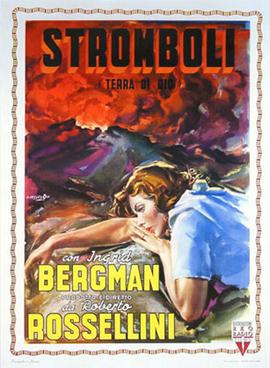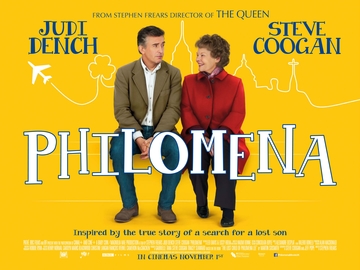Search This Blog
Tuesday, December 31, 2013
The Hound Of The Baskervilles (1939)
The heir (Richard Greene) of the Baskerville estate in the moors of Devonshire arrives from Canada to take his rightful place as the last of the Baskervilles after the mysterious death of his uncle (Ian Maclaren). A local doctor (Lionel Atwill) asks the renowned detective Sherlock Holmes (Basil Rathbone) to look into the death as he believes it may be the result of a long standing curse. The surprise success of this film (Rathbone doesn't even get top billing) resulted in Rathbone doing 14 Sherlock Holmes movies. After awhile, they got further and further away from the Sir Arthur Conan Doyle novels, often using original scripts and placing Holmes in contemporary settings fighting Nazis! But this first effort stays close to the Conan Doyle source material and remains the benchmark of the Rathbone series. The unobtrusive direction by Sidney Lanfield along with the richly atmospheric art and set direction (lots of fog in those craggy moors) and the sterling performances of Rathbone and Nigel Bruce as Dr. Watson make this a bona fide treat for mystery lovers. With Wendy Barrie, John Carradine, Mary Gordon, Eily Malyon and Morton Lowry.
Monday, December 30, 2013
Triple Cross (1966)
Sunday, December 29, 2013
Death Of A Gunfighter (1969)
A corrupt and cowardly town wants to get rid of its sheriff (Richard Widmark) for two reasons. One, his way of doing things doesn't fit in with their idea of a civilized west and two, more importantly he knows their secrets and misdeeds. Based on the novel by Lewis B. Patten and directed by Robert Totten (THE QUICK AND THE DEAD) and Don Siegel (THE BEGUILED). Totten left the film after the usual "creative differences" with Widmark and replaced by Don Siegel who didn't want his name on the film so the movie is credited to the non existent Allen Smithee. This western, like many done around its time (THE WILD BUNCH, BUTCH CASSIDY AND THE SUNDANCE KID), reflects on the changing West and the encroaching civilization. Its premise of a vile and unworthy town that resorts to cold blooded murder to achieve its own ends is intriguing. Intriguing enough to hold our attention and wish it were better. But there's something flat about it and something feels missing and not all of its characters are fully developed. For instance, Carroll O' Connor's barkeep doesn't make sense, just what is his problem? Lena Horne (in a rare dramatic role) is Widmark's mistress and the owner of the town's brothel, yet their interracial romance is never addressed which leads one to suspect the role may not have been written for a black actress. Still, for a film that's an orphan, its promise is enough to make it worth a watch. There's a nice score by Oliver Nelson, too. With John Saxon, Kent Smith, David Opatoshu, Royal Dano and Jacqueline Scott.
Her (2013)
Saturday, December 28, 2013
Grease (1978)
The Velvet Touch (1948)
An actress (Rosalind Russell) unintentionally kills her producer and lover (Leon Ames) when he attacks her after she tells him she is leaving him for another man (Leo Genn). She gets away with the killing but her conscience begins to trouble her especially when another woman (Claire Trevor) is suspected of the murder. Though one can't exactly call it a murder mystery since we know who the murderess is from the very beginning, the film nonetheless keeps us in suspense as to whether or not she will break down and confess. Being a 1940s Hollywood film, we can be fairly sure of the outcome but the film is greatly aided by its backdrop, the world of the Broadway theater which gives the film a unique touch. Russell is suitably neurotic, Trevor does her usual spot on bruised woman number and Sydney Greenstreet is a delight as the police inspector investigating the case with a taste for fine food and good theater. Yet one can't help feel that it could have been better. But where does the blame go? Perhaps to director John Gage whose only film this is. With Martha Hyer, Lex Barker, Frank McHugh, Theresa Harris, Esther Howard and Dan Tobin.
Friday, December 27, 2013
Forever, Darling (1956)
August: Osage County (2013)
Monday, December 23, 2013
Le Casse (aka The Burglars) (1971)
Sunday, December 22, 2013
Eloise At Christmastime (2003)
Anchorman 2: The Legend Continues (2013)
Saturday, December 21, 2013
Remember The Night (1940)
Friday, December 20, 2013
Cast A Long Shadow (1959)
Inside Llewyn Davis (2013)
Thursday, December 19, 2013
Dangerous Christmas Of Red Riding Hood (1965)
From his cage at a zoo, a wolf (Cyril Ritchard) recounts how he was misunderstood and gives us the true story of the Red Riding Hood (Liza Minnelli) incident. A musical revisionist tale, the film's main asset is the strong Broadway worthy songs by Jule Styne and Bob Merrill, the composer and lyricist of FUNNY GIRL and its two lead performers. Minnelli is in great voice and Ritchard hams it up deliciously. The weak production values are cheap looking like something you'd see at a community theater Christmas play and the choreography by Lee Theodore never rises much above that level either. In an attempt to attract the teenage crowd, the rock group The Animals (The House Of The Rising Sun) are cast as Ritchard's wolf pack but their one song We're Going To Howl Tonight is the weakest of the show's songs and they seem uncomfortable when required to say the simplest of lines. Also on hand, Vic Damone as the woodsman. Directed by Sid Smith.
Storm In A Teacup (1937)
A reporter (Rex Harrison) is assigned to interview a Scottish politician (Cecil Parker) who is running for Parliament. When the politician rudely kicks a poor woman (Sara Allgood) out of his house when she attempts to plea for her dog (Scruffy) to be saved from extermination, the reporter's subsequent article causes a scandal which grows ... well, like a storm in a teacup. It only complicates matters when the reporter is attracted to the politician's daughter (Vivien Leigh). This slight comedy is quite daffy but it has a sweetness about it that's quite charming. The satire is evenly aimed at both the pompous politician and the frenetic dog lovers. Harrison and Leigh are not quite the stars (or actors) they would later become and Leigh, in particular, is wasted in a standard ingenue role. Fluff but of interest in seeing its two leading players so early in their careers. Co-directed by Ian Dalrymple and Victor Saville. With Ursula Jeans and Gus McNaughton.
Wednesday, December 18, 2013
La Grande Bellezza (aka The Great Beauty) (2013)
Tuesday, December 17, 2013
Caprice (1967)
An industrial spy (Doris Day) for a cosmetics company is attempting to steal the secret of a revolutionary water repellent hairspray from a competitor. But when murder and narcotics enter the picture, her mission becomes less superficial. An attempt at re-imagining Doris Day into a more "mod" image, a sort of American Modesty Blaise, the film was a failure when released (Day disliked the film) but today it plays better than its reputation would suggest. Which doesn't mean it's very good, just better than the commonly held negative opinion. Some of the skiing sequences and stunt work are pretty good though the obvious backdrops spoil the effect. The director and co-writer Frank Tashlin's influence is discernible, his cartoonish slapstick style is prominent, notably in a pursuit chase by police in an apartment complex. The film's biggest stumbling block is that Day and her leading man, Richard Harris, have zero chemistry. Charm was never the intense Harris's forte but I suppose it was the studio's idea to pair her with a then "hot" British actor. Still, some of the scenes seem strange coming in a Day film like when Michael J. Pollard is feeling Day up and sticks his hand right up her dress! Of course, being Day she slaps him. The theme song sung by Day is quite pretty though and Frank De Vol did the Mancini-ish score. With Ray Walston, Lilia Skala, Edward Mulhare, Irene Tsu and Jack Kruschen.
Hilda Crane (1956)
Monday, December 16, 2013
Brute Force (1947)
A sadistic, near psychopathic chief guard (Hume Cronyn) rules a prison with an iron fist while the ineffectual warden (Roman Bohnen) looks the other way. But his vicious cruelty drives the men to the brink of their endurance and it's only a matter of time before everything explodes. The title says it all. This is a gritty and violent look at prison life, where rehabilitation takes a backseat to cruel and unusual punishment. Even though the film takes place entirely in a prison (except for the obligatory flashbacks), Jules Dassin's film is often classified as noir. The sense of a hopeless predestined fate is there as well as the requisite B&W chiaroscuro lensing courtesty of William H. Daniels (NINOTCHKA) and a moody score by noir veteran Miklos Rozsa. If the film has any strong drawback it's in the somewhat overdone portrayal of Cronyn's evil guard who you almost expect to twirl his moustache and give a wicked laugh. There's nothing wrong with Cronyn's performance, he's quite good, it's in the writing. The flashbacks are necessary to bring the girls into the story though they only minimally add anything to the narrative. With Burt Lancaster, Ann Blyth, Yvonne De Carlo, Howard Duff, Charles Bickford, Ella Raines, Charles McGraw, Sam Levene, Whit Bissell, John Hoyt, Anita Colby, Art Smith, Jay C. Flippen and Jeff Corey.
Sunday, December 15, 2013
American Hustle (2013)
Saturday, December 14, 2013
Avalanche (1978)
Five Golden Hours (1961)
Saving Mr. Banks (2013)
A Yank In The R.A.F. (1941)
A brash and egotistical American flyer (Tyrone Power) joins the Royal Air Force. He doesn't take the war seriously and is more interested in pursuing a dancer (Betty Grable) working in London. The emphasis on this lightweight piece of celluloid is on romance with the war (the U.S. had not entered WWII at this point) providing some action. Unless you find cockiness appealing, Power's character remains a turn off through out the film despite the actor's innate charm. Though she has a couple of musical numbers, Grable is used primarily as an actress here and while the role hardly applies any demands on her, she's a blank. Curiously, the film somehow seems to equate irresponsibility with heroism but then again, this is a Hollywood view of the European war before we were into it. Some of the aerial sequences (director Ronald Neame was one of the cinematographers) are well done (especially a forced landing on a beach) but the entire film was shot on the Fox sound stages rather than any location shooting, understandable as there was a war on in Europe. Efficiently if generically directed by Henry King. With John Sutton as Power's romantic rival, Reginald Gardiner and Ethel Griffies.
Tuesday, December 10, 2013
The Restless Breed (1957)
Hold Your Man (1933)
When a grifter (Clark Gable) meets a fellow con artist (Jean Harlow), sparks fly! But when they attempt to blackmail one of her married lovers, everything goes wrong and she ends up in prison. There are pleasures to be had in basking in the glow of genuine movie stars like Gable and Harlow. It's such sheer gratification just to watch them play off each other that it almost seems rude to ask for more ... like a great script. But the best thing about the film is the lengthy prison sequence which leaves Gable out of the picture for awhile. Since this is a pre code film, we get a gritty look at a diverse assortment of female inmates (both ethnically and socially): a radical leftist (Barbara Barondess), a drunk (Dorothy Burgess), a black preacher's daughter (Theresa Harris) among others. The subplot with Harris who has been turned in for theft by her preacher father (George Reed) is notable for its portrayal of its African-American characters by giving them some substance and dignity rather than the usual stereotyping. Directed by Sam Wood (who is inexplicably not credited). With Stuart Erwin as the good hearted chump hopelessly in love with Harlow, Elizabeth Patterson, Louise Beavers, Inez Courtney and Garry Owen.
Monday, December 9, 2013
The Naked Jungle (1954)
In 1901 South America, a mail order bride (Eleanor Parker) by proxy arrives at the large cocoa plantation of the husband (Charlton Heston) she's never seen or met. He's rather cold, aloof and suspicious of a beautiful woman who would marry a stranger she's never met and leave civilization for the jungles of South America. Produced by George Pal and directed by Byron Haskin who had teamed up on WAR OF THE WORLDS the year before. Exotic jungle adventures were very popular at the box office in the 1950s whether the jungles of Africa, India or South America. This is quite possibly the best of the bunch, I know it's my favorite. The adventure is exciting if simplistic but the combination of Heston and Parker, who have a great chemistry together, makes this just pop! The stalwart Heston has never been sexier and Parker positively smolders (the look she gives him as he rubs lotion on her is invaluable). The movie manages to make ants as terrifying as some horror movie monster and if you first saw the movie as an adolescent, its images stayed with you forever. With William Conrad and Abraham Sofaer.
Saturday, December 7, 2013
The Christmas Wish (1998)
We Were Strangers (1949)
Deamboat (1952)
Wednesday, December 4, 2013
The Invisible Woman (2013)
The Mask Of Dimitrios (1944)
Tuesday, December 3, 2013
Valmont (1989)
Monday, December 2, 2013
Avalanche Express (1979)
A team of CIA operatives use a defecting high ranking Soviet general (Robert Shaw) as bait by having him travel by train. Their intent is that the Russians will openly attack the train hoping to kill the defector and thus expose their secret agents. With a top notch cast (in addition to Shaw, there's Lee Marvin, Maximilian Schell, Linda Evans), a solid director in Mark Robson, a screenplay by Abraham Polonsky (BODY AND SOUL), one would expect, at the very least, a competent Cold War action piece. But everything seems to go wrong. An enervated Marvin and a tired Shaw seem to walk through their parts and Polonsky's screenplay is often incoherent and illogical. It didn't help that both Robson and Shaw died during the making of the film and Shaw's voice is dubbed throughout the film. The film's avalanche sequence seems to belong to a different movie, perhaps a disaster film. The only asset the film has is Jack Cardiff's nicely rendered cinematography but he's not even listed in the film's credits and Evans at least seems trying to give a performance. With Horst Buchholz, Mike Connors, Joe Namath and Vladek Sheybal.
Sunday, December 1, 2013
Under Fire (1983)
The Angry Red Planet (1959)
A rocket ship returns to Earth after mankind's first landing on Mars but there are only two survivors out of the four person crew. The crew's leader (Gerald Mohr) is unconscious and has a strange growth attached to his arm while the biologist (Naura Hayden) has a loss of memory. This is low budget science fiction at its cheesiest. Shot in little over a week (and it shows), the screen goes literally red when they are outside of the spaceship and exploring the planet. Well, that's one way of disguising the painted backdrops passing for Mars or the creepy papier mache creatures right out of a Japanese "monster that ate Tokyo" movie. It wouldn't have mattered in the long run if the movie were at least fun but it's tedious to the extreme. It's a particularly ugly looking movie so I was quite stunned during the end credits when I saw the film was shot by the great Stanley Cortez (THE MAGNIFICENT AMBERSONS, NIGHT OF THE HUNTER)! Directed by Ib Melchior. With Les Tremayne and Jack Kruschen.
Saturday, November 30, 2013
Shrek The Musical (2013)
Stromboli (1950)
Friday, November 29, 2013
Thoroughly Modern Millie (1967)
In the early 1920s, a young woman (Julie Andrews) transforms herself into a "modern" flapper. Staying at a hotel for young ladies, she befriends a wealthy but innocent girl (Mary Tyler Moore) who lives across the hall and wants to be an actress. What they don't know is that the hotel manager (Beatrice Lillie) uses the hotel as a front for a white slavery ring. This musical satire of 1920s conventions retains its charm for most of the film but ultimately descends into silliness. It tries too hard and nudges you to appreciate its cleverness. None of the film's flaws can be blamed on the committed cast who overact perfectly. The film's main asset is a spunky Julie Andrews (giving us a glimpse of what she might have been like in THE BOY FRIEND). She looks great in Jean Louis' 20s attire and is fine voice singing several numbers including the Oscar nominated title tune. Carol Channing (Oscar nominated for her work here) gets a part that perfectly matches her outsized personality and since it's a supporting role, one doesn't tire of her as one might if she were playing a leading part. The Asian stereotypes are problematic but not overtly offensive. Curiously, Elmer Bernstein's forgettable incidental music won him his only Oscar. Directed by George Roy Hill. With James Fox, that handsome piece of wood John Gavin aptly cast as a handsome piece of wood, Pat Morita, Jack Soo, Philip Ahn, Anthony Dexter and Lisabeth Hush.
Charade (1963)
When a wife (Audrey Hepburn) returns home from vacation, she finds her apartment empty and her husband a murder victim. Apparently her husband was killed because of the $250,000 in gold he stole during WWII after double crossing his partners. But the money is still missing and her husband's killers threaten to kill her unless she tells them where the money is hidden. But she doesn't know! Stanley Donen's first rate romantic thriller is often referred to as the best Hitchcock film not directed by Hitchcock. It's chic and glamorous with a clever and amusing screenplay by Peter Stone and genuine Star power with Hepburn and Cary Grant in the leads and a trio of uniquely eccentric villains (James Coburn, George Kennedy, Ned Glass). It's a perfect blend of screwball comedy and high octane thrills and as shot by Charles Lang, Paris has never looked more appetizing. It's movies like this that made us fall in love with the movies in the first place. The elegant score is by Henry Mancini. With Walter Matthau and Jacques Marin.
Thursday, November 28, 2013
All Night Long (1962)
Wednesday, November 27, 2013
The Kid From Brooklyn (1946)
Tuesday, November 26, 2013
She Done Him Wrong (1933)
Monday, November 25, 2013
The Day Will Dawn (1942)
Sunday, November 24, 2013
The Toast Of New Orleans (1950)
In 1905 Louisiana, a bayou fisherman (Mario Lanza) with a magnificent voice is discovered by an opera impresario (David Niven) and urged to come to New Orleans to study opera. Lanza's MGM debut THAT MIDNIGHT KISS with Metro's resident soprano Kathryn Grayson had been a big hit so the studio was eager to re-team them and THE TOAST OF NEW ORLEANS was the result. It's a marginally better film than the first one but it's still the standard formula. Lanza is appealing and Grayson of the heart shaped mouth is quite attractive (until she begins trilling) but the large doses of unimaginatively staged opera sequences slow down the film. Much better are the musical numbers like Be My Love and the dances staged by Eugene Loring. One can't complain about the Technicolor eye candy either and the technical aspects are okay but the "fish out of water" indignities played out by Lanza and J. Carrol Naish as his uncle become annoying after awhile. Directed by Norman Taurog. With Rita Moreno (who gets to show off her dancing skills), James Mitchell, Clinton Sundberg and Richard Hageman.
Richard III (1912)
The Duke of Gloucester (Frederick Warde) desires the throne of England now held by his brother Edward IV (Robert Gemp) and embarks on a path of murder and deceit to accomplish his goal. Directed by Andre Calmettes and James Keane, the debatable concept of doing Shakespeare as silent cinema aside (you're robbing him of his words!), the film is of interest as an artifact of the dawn of American film. It's quite primitive, the camera doesn't move and the actors still enter and exit as if performing in a play. Even the "opening up" of the play is stagnant. For example, the camera is placed at the end of a road as we see men on horseback galloping forward and eventually riding past the dormant camera. The lack of movement neuters the battle of Bosworth Field. The acting is archaic with lots of indicating and breast beating. There's no visual equivalent to compensate for the lack of Shakespeare's poetry. But the evocative score by Ennio Morricone goes a long way in making up for the film's deficiencies. That being said, for anyone interested in silent cinema or cinema at all, the film has value. With James Keane and Violet Stuart.
Philomena (2013)
Saturday, November 23, 2013
Torn Between Two Lovers (1979)
Persona (1966)
When an actress (Liv Ullmann) has a breakdown and refuses to talk, literally, a young nurse (Bibi Andersson) accompanies her to a summer cottage by the sea where she is to recover. But there in the island's solitude, the two women find themselves feeding off each other. One of Ingmar Bergman's greatest films (some say his greatest), this is a fascinating film full of deceptively simple imagery yet often obvious symbolism. It's not Bergman at his most subtle (has he ever been?) but the man is a genuine Artist and when you're in the hands of a master at his very best, subtlety be damned! The secrets of PERSONA remain secrets to this day which is part of the reason the film resonates so powerfully still. One can guess, but only guess, at what Bergman is telling us. His film is open to so many interpretations that each new viewing reveals another nugget or two to ponder over and as sure as we may be about our own analysis, in the end, it's just that, our own ... not definitive. Andersson's performance is superb (her monologue on a sexual encounter on the beach is a tour de force) but Ullmann's equally dynamic performance may be overlooked because Andersson has all the dialogue. One of the great works of cinema.
Subscribe to:
Posts (Atom)

.JPG)


.JPG)


.JPG)


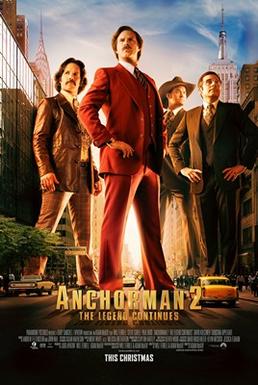
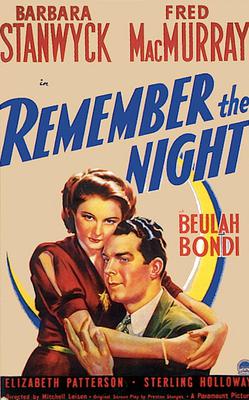

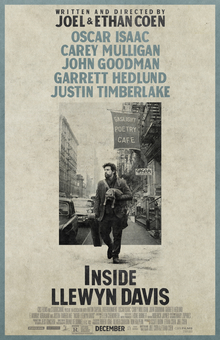











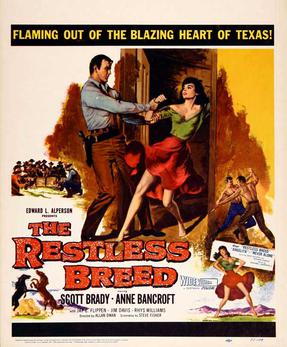



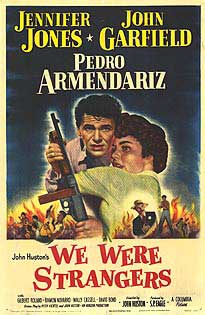

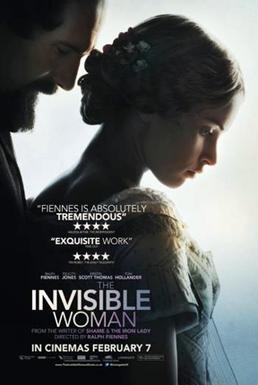
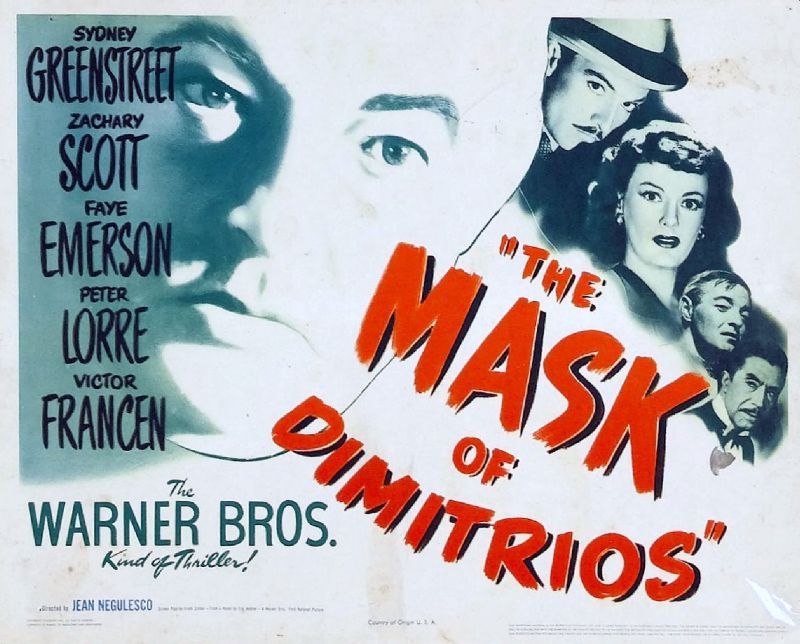

.JPG)



